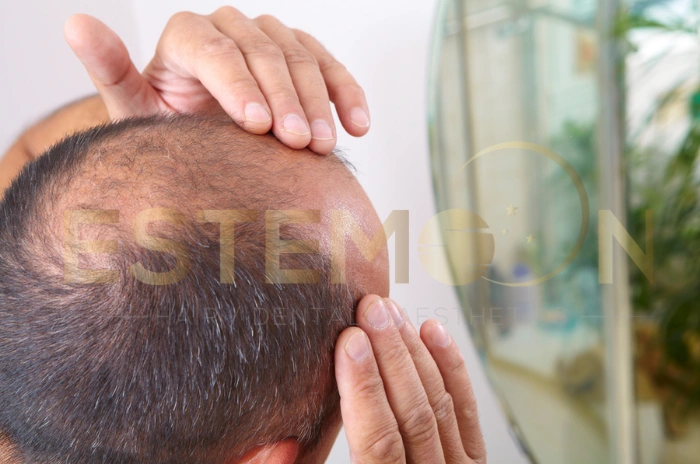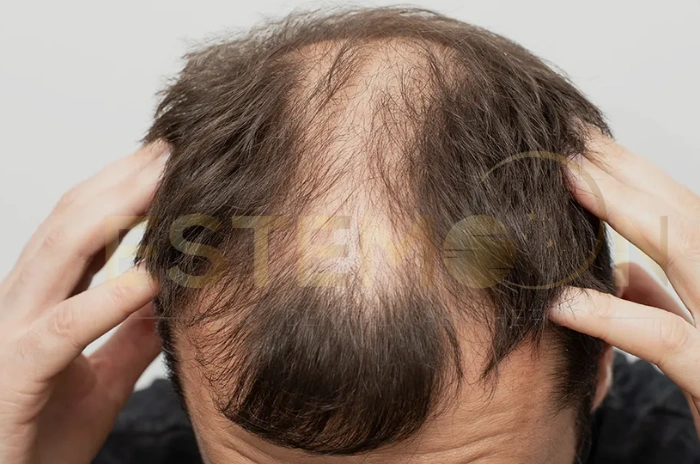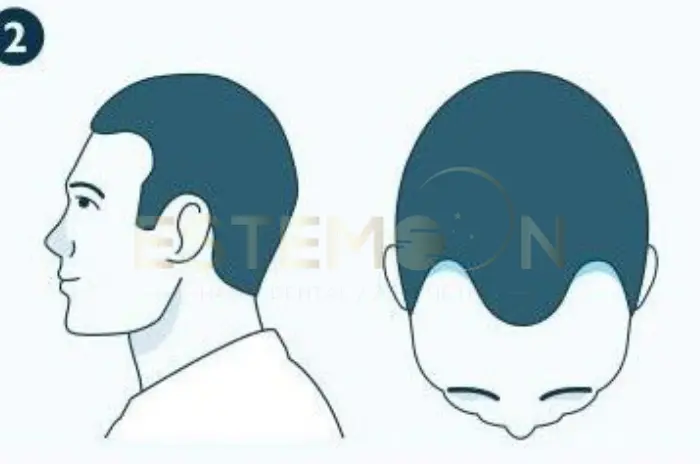Androgenetic alopecia is the most common cause of hair loss in men and women worldwide. For those seeking effective treatment options, 5-alpha reductase inhibitors like finasteride and dutasteride have emerged as powerful solutions. Both medications work by blocking the conversion of testosterone to dihydrotestosterone (DHT), the primary hormone responsible for male pattern hair loss and female pattern hair loss.
Understanding the differences between these two DHT blockers is crucial for making an informed treatment decision. While both medications target the same pathways, their mechanisms of action, efficacy rates, and side effect profiles differ significantly. This comprehensive guide examines the evidence-based comparison between dutasteride and finasteride to help you understand which treatment might be more effective for hair regrowth.
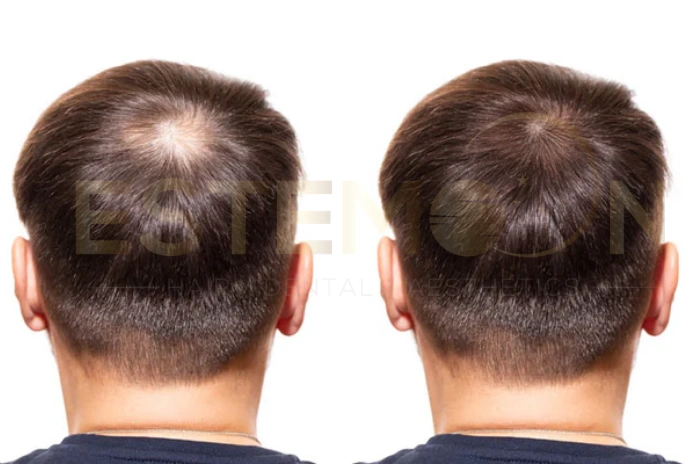
Effectiveness of Dutasteride vs Finasteride in Hair Regrowth
Clinical research consistently demonstrates that dutasteride is more effective than finasteride for treating androgenetic alopecia. A landmark randomized controlled study found that dutasteride group participants experienced significantly higher increases in total hair count per cm² (baseline: 223 hair; at 24 weeks: 246 hair) compared to the finasteride group (baseline: 227 hair; at 24 weeks: 231 hair).
The mechanism behind this superior efficacy lies in dutasteride’s dual inhibition of both type I and type II 5-alpha reductase enzymes, while finasteride inhibits only the type II enzyme. Since both isoenzymes are present in hair follicles, dutasteride’s broader inhibition makes it more effective for hair regrowth.
| Parameter | Dutasteride | Finasteride |
|---|---|---|
| 5-Alpha Reductase Inhibition | Type I & Type II | Type II only |
| DHT Suppression | 98% | 71% |
| Hair Count Increase (24 weeks) | 223→246 per cm² | 227→231 per cm² |
| Thin Hair Reduction | 65→57 per cm² | 67→66 per cm² |
| FDA Approved for Hair Loss | No (off-label) | Yes |
| Half-life | 5 weeks | 6-8 hours |
Side Effects of Dutasteride and Finasteride for Hair Loss
Both dutasteride and finasteride share similar side effect profiles, with sexual dysfunction being the most commonly reported adverse effect. However, emerging evidence suggests important differences in their safety profiles.
Surprisingly, real-world data from the EudraVigilance database revealed that finasteride may actually have higher rates of sexual side effects compared to dutasteride. The risk of ejaculation disorders was 8 times higher with finasteride versus dutasteride, and the risk of erectile dysfunction and decreased libido was 5 times higher.
Common side effects for both medications include breast enlargement and tenderness, as well as potential allergic reactions. Dutasteride carries an additional risk of high-grade prostate cancer, which patients should discuss with their healthcare professionals.
Comparing the Efficacy of Finasteride and Dutasteride for Hair Loss
Multiple systematic reviews have concluded that dutasteride is more potent than finasteride in treating both male androgenetic alopecia and female androgenetic alopecia due to its dual inhibiting effect on both type 1 and type 2 5-alpha reductase enzymes.
The reversal of miniaturization, a key indicator of treatment success, showed significantly greater improvement with dutasteride. A 2022 meta-analysis determined that a daily 0.5mg dose of oral dutasteride has the “highest probability of being the most efficacious treatment” compared to common doses of oral finasteride.
| Study Parameter | Dutasteride Advantage | Statistical Significance |
|---|---|---|
| Total Hair Count Change | +28.57 mean difference | P<0.00001 |
| Vertex Photography Assessment | +0.68 mean difference | P=0.02 |
| Frontal Photography Assessment | +0.63 mean difference | P=0.01 |
| Patient Satisfaction | +0.56 mean difference | P=0.003 |
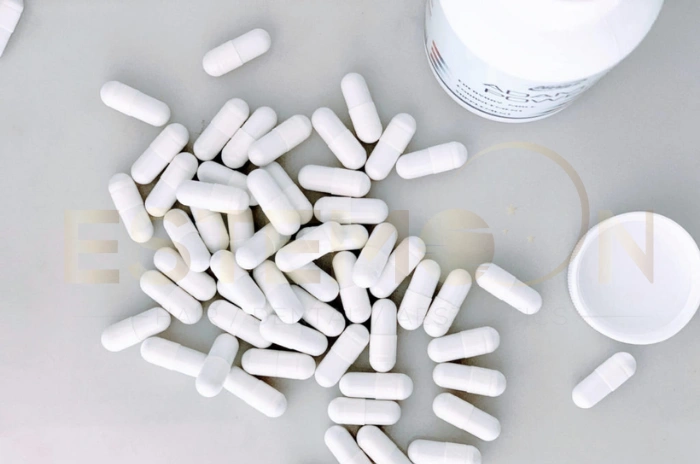
Who Should Not Take These Medicines
Both dutasteride and finasteride have important contraindications that must be carefully considered before starting treatment.
Women who are pregnant or may become pregnant should not use finasteride or handle crushed or broken tablets, as these medications can cause birth defects in male babies. Similarly, women of childbearing potential should not use or handle dutasteride capsules.
Patients with liver disease should use these medications with caution, as the effects may be increased due to slower removal of the medicine from the body. Men who have taken dutasteride should not donate blood until 6 months have passed since the last dose.
Long-Term Use of Finasteride and Dutasteride for Hair Loss
Long-term safety considerations are crucial when choosing between these medications, as androgenetic alopecia treatment typically requires extended use to maintain benefits.
Emerging research suggests that long-term use of finasteride and dutasteride may be associated with metabolic health risks including non-alcoholic fatty liver disease (NAFLD), insulin resistance, type 2 diabetes, dry eye disease, and potential kidney dysfunction.
However, real-world long-term safety data showed that the incidence rates for adverse events were comparable between dutasteride and finasteride users, with no deaths reported in either treatment group during extended follow-up periods.
Which Works Better for Hair Regrowth Finasteride or Dutasteride
The evidence overwhelmingly supports dutasteride as the more effective treatment for hair regrowth in androgenetic alopecia. Clinical studies demonstrate that dutasteride produces significantly greater increases in hair count and superior reversal of miniaturization compared to finasteride.
The introduction of low-dose dutasteride (0.2 mg) provides an option for patients seeking the superior efficacy of dutasteride with potentially reduced side effects, while still maintaining significant hair growth benefits.
Which Is More Effective for Hair Regrowth Finasteride or Dutasteride
Based on comprehensive clinical evidence, dutasteride emerges as the more effective treatment for hair regrowth in androgenetic alopecia. The fundamental difference lies in their mechanisms: dutasteride inhibits both type I and type II 5-alpha reductase while finasteride inhibits only type II.
| Comparison Factor | Winner | Reason |
|---|---|---|
| Hair Growth Efficacy | Dutasteride | Superior DHT suppression (98% vs 71%) |
| FDA Approval | Finasteride | Officially approved for hair loss |
| Side Effect Profile | Dutasteride | Lower sexual dysfunction rates |
| Research Volume | Finasteride | More extensive long-term studies |
| Cost | Finasteride | Generally less expensive |
| Dosing Frequency | Equal | Both once daily |
Long-term effectiveness studies confirm that dutasteride shows significantly better hair growth improvements and is well tolerated, with real-world evidence supporting its superiority over finasteride in clinical practice.
Systematic reviews of randomized controlled trials consistently demonstrate that all groups receiving various doses of dutasteride exhibit significantly greater increases in hair count compared to finasteride groups.
For patients seeking the most effective treatment for hair regrowth, dutasteride represents the superior choice based on current scientific evidence. However, the decision should always be made in consultation with a healthcare provider who can assess individual risk factors and treatment goals.
FAQs About Finasteride or Dutasteride Which Is More Effective for Hair Regrowth
How much more effective is dutasteride than finasteride?
Dutasteride shows significantly superior effectiveness with studies demonstrating greater hair count increases and better reversal of miniaturization compared to finasteride.
What are the sexual side effects of both medicines?
Both medications can cause decreased libido, erectile dysfunction, and ejaculation disorders, with some studies suggesting finasteride may actually have higher rates of sexual side effects than dutasteride.
Are there any long-term risks using these medicines?
Long-term use may be associated with metabolic risks including liver disease, diabetes, and kidney dysfunction, though more research is needed to fully understand these potential effects.
Which medication is better for advanced hair loss?
Dutasteride is considered the most effective treatment option for advanced hair loss due to its superior DHT blocking capabilities and higher probability of therapeutic success.
Follow us on social media for updates, tips, and patient success stories:

